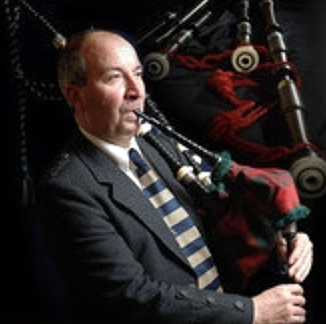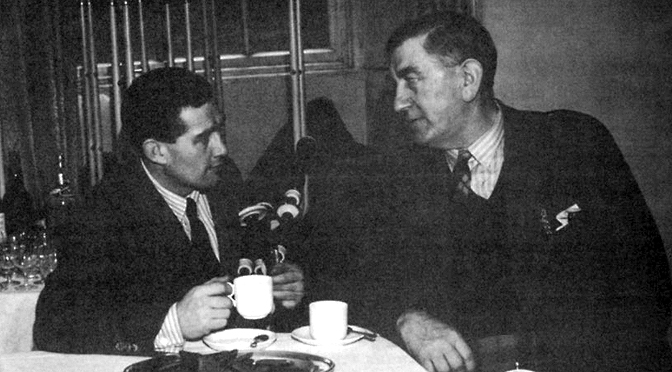 Pipebagmaker James Begg has criticised the Northern Meeting solo piping competition for the prices they charge pipers for entry. In his regular newsletter Mr Begg writes:
Pipebagmaker James Begg has criticised the Northern Meeting solo piping competition for the prices they charge pipers for entry. In his regular newsletter Mr Begg writes:
‘I travelled up to Inverness for the annual Northern Meeting solo piping competition. It was a well run occasion yet again but I must say a £50 competitor entry payment is a bit Scrooge-like. An event of this quality should be able to finance itself without charging the player like this – maybe it should be the other way round with £50 being given to each player as appearance money. It is even more astonishing to find that Juniors are charged £15 entry money for the Junior competition.
‘It costs a lot to travel to and stay in Inverness. It’s not a cheap city and difficult to get to for many. I am reluctant to add up what the two-day trip cost me (and the £12.50 glass of wine in my hotel didn’t help matters – how do they dream up these charges in a place like Inverness?). A rethink of how the event’s finances work may be in order and perhaps the financials are somewhat stuck in a past philosophy when, in 1788, thirteen Highland gentlemen, presumably of some substance, created the Northern Meeting. The initial membership was largely made up of landowners in the local area, but also included the Provost and Baillies and a number of lawyers, doctors, bankers and merchants from Inverness.’
Whether you agree with Jim or not (and I am sure most pipers do), good on him for having the spine to speak out. It is this sort of campaigning the Competing Pipers Association should be doing on behalf of their members instead of constantly cosying up to promoters, doing their bidding and worrying unnecessarily over ‘corrupt’ judges lurking behind every bass drone (see below). [wds id=”2″]On the finances front I know the hire of the Eden Court Theatre (pictured top) is very expensive and the cost of bringing judges to the capital of the Highlands is not cheap either, but I do agree with Jim to a point. Pipers have to consider accommodation and travel too. But then a major prize at Oban or Inverness is something to savour for a lifetime and as such the annual expense of getting there can be cast in a rosier light. And despite the cost, the restrictions on entry numbers mean pipers are climbing over each other to get a place.
As Donald MacPherson, the most successful piper of all time, said, winning is enjoyable at any time, but winning at Oban and Inverness puts you into the history books.

Mr Begg has a lot to get off his chest and offers this sensible take on the judging debacle: ‘Is nepotism and biased judging rife in solo competition? It would appear that the ‘powers that be’ of all things piping have produced a directive that at the elite Inverness, Oban and London contests, judges should not judge someone who is a relative, friend, associate etc. I am not sure why this applies to three events only – perhaps it would be difficult to monitor if it applied to a broader area.
‘This issue has of course been around for years. Piping has a particular difficulty in that a lot of people learn from their fathers, uncles, family friends and so on and it also has a very small population that is close-knit where virtually everyone knows everyone else. I suspect a can of worms may have been opened and whilst in theory it may be of great merit, it will be almost impossible in reality to get a judging bench where no-one has a connection somewhere along the line with a competitor – pals, friend of a friend, distant cousin, pupil and so on – where would you stop?
‘You can’t since virtually everyone has some sort of connection. It must surely be a bit of a slur on a judge’s integrity and moral standing if you start to question his or her impartiality. Perhaps hiding judges from the competitors would be possible but I’m sure visual contact is part of the performance and judgment too, not to mention the fact that judges of course can tell who is playing by their style and intonation. My overall problem is not the intent itself but how you could implement it in a sensible and constructive manner and I await the outcome with interest. I am sure however that there must be other more crucial areas than this to sort out for the judging and competition organisers.’
Again very well said Jim; that trip to hospital has clearly sorted out the thought processes in the old brain!
South African piper and lawyer Nicholas Taitz has weighed in with a well-written letter on the judging issue. Read it here. And thanks to those in the judging fraternity who have emailed and phoned their support for our stance on this matter.
Businessman Bill McCall has a letter about Dollar Academy’s trip to the WW1 battlefields where young Finlay Cameron played the lament. Read it here.
















The letter from Nicholas Taitz is erudite. The one criticism I have is that the letter is hidden in the letters section of this blog. It deserves a headline as a stand alone piece.. More will be written on this and it will not go away. By August and September when the major competitions take place, it will have maybe calmed down a bit. Judges are always under a certain amount of scrutiny and that is expected. However judges who accept assignments to the targeted competitions will be under greater scrutiny by competitors , judges, audience members and indeed promoters and their sponsors. To err is human and to forgive is divine. There may be little in the way of forgiveness as the pitfalls and fallout in this have been pointed out. There are individuals who apparently have been pushing this through who have both taught and judged their own pupils at the targeted competitions. There motivation to teach probably came from two factors. They must have had belief that they had something worth passing on and their pupils probably thought that the teachers were fonts of knowledge. Promoters in general will invite judges, hopefully on their ability and honesty and judges will accept assignments in the belief that they can carry out the task. As far as pupils etc. are concerned, the promoters will and should expect judges to acknowledge their involvement with the competitors and get on with what they are ‘contracted’ to do. It should be remembered that this refers to major competitions and it is predominately judges from the senior level who are engaged. Also, in the likes of the Gold Medal and Clasp and former winners competitions at the likes of the Northern Meeting, the benches comprise 3 judges. Should one or two of those judges judge a pupil/competitor, the fellow judges and indeed maybe the competition Convenor all in the knowledge of the judge/pupil association, are complicit in this perceived “evil.” Taken in any concept, they are in joint venture, art and part, acting in concert. It is clearly the case that most or all judges have knowledge of each other and indeed friendships are developed in the judging fraternity, although one, could wonder? Promoters are the employers of the judges and if this decision of prohibiting judges judging their pupils is accepted by them and an alleged infringement takes place, promoters, whether they like it or not, will get dragged into it as it is they who engage the judges.